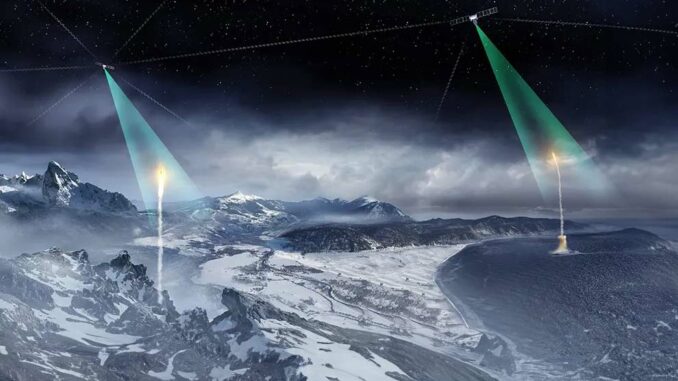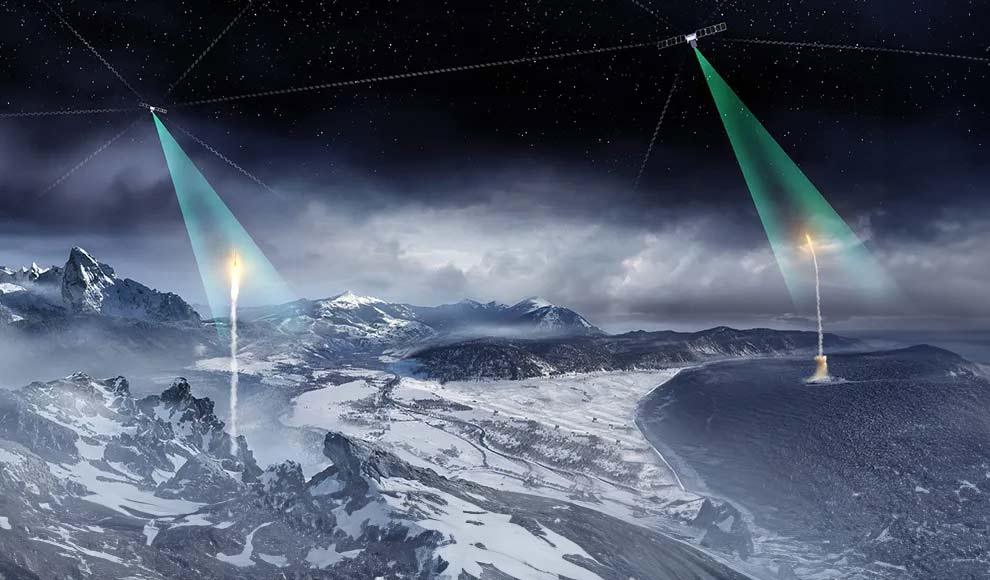
EpiSci develops AI software to detect hypersonic missiles from space, funded by a $1.6 million contract from the Space Development Agency.
California-based EpiSci has been commissioned by the U.S. Space Development Agency (SDA) to develop a software tool capable of detecting hypersonic missiles in flight from satellite data. The project, supported by a two-year, $1.6 million Small Business Research and Innovation contract, aims to meet the challenge posed by the extreme speed of these weapons, which travel at Mach 5 or higher. EpiSci’s initiative is part of a broader SDA effort, which is building a network of low-earth orbit satellites to provide global indications, alerts, tracking and targeting of advanced missile threats.
A technical and strategic challenge
Hypersonic missiles represent a significant challenge for today’s defense systems due to their speed and maneuverability. The ability to detect and track them in real time requires cutting-edge technology and precise tracking algorithms. EpiSci, in collaboration with Raytheon Technologies, will develop AI-powered software, tested against data collected by sensors in low Earth orbit, to identify and track these hypersonic threats. This project requires not only advanced data analysis, but also close collaboration between multiple satellites to maintain “custody” of these fast-moving targets over great distances.
Space surveillance background
The SDA’s commitment to building a satellite network is aimed at strengthening national and global security in the face of rapidly evolving missile threats. With plans to deploy up to 100 missile-tracking satellites, the agency emphasizes the need for global surveillance and rapid response capability against advanced threats, highlighting the importance of integrating advanced software solutions to effectively analyze space-based data.

Implications and outlook
The success of this project could revolutionize the way hypersonic threats are detected and tracked, improving global defensive capabilities. However, the development and implementation of this technology poses unique challenges, particularly in terms of the accuracy of tracking algorithms and collaboration between satellites. In addition, the use of AI in defense raises ethical and safety issues, particularly concerning autonomous decision-making and system reliability in critical situations.
Towards innovative space defense
EpiSci’s partnership with Raytheon Technologies and its expertise in AI for autonomous drones and improving the performance of combat pilots play a key role in this ambitious project. The application of advanced technologies in the field of defense and space surveillance represents an important step towards modernizing military capabilities and protecting against new and emerging threats. This project illustrates the growing importance of technological innovation and cross-sector collaboration in maintaining national and international security in the information age.
An enhanced security horizon
EpiSci’s initiative, supported by the SDA, to develop software to detect hypersonic missiles using artificial intelligence, marks a significant step forward in space defense strategy. This project not only highlights the challenges posed by hypersonic weapons, but also paves the way for new surveillance and defense methods, underlining the crucial role of technological innovation in securing the world’s airspace against the threats of the 21st century.
War Wings Daily is an independant magazine.